IRF3 prevents colorectal tumorigenesis via inhibiting the nuclear translocation of β-catenin
- PMID: 33188184
- PMCID: PMC7666182
- DOI: 10.1038/s41467-020-19627-7
IRF3 prevents colorectal tumorigenesis via inhibiting the nuclear translocation of β-catenin
Erratum in
-
Author Correction: IRF3 prevents colorectal tumorigenesis via inhibiting the nuclear translocation of β-catenin.Nat Commun. 2023 Nov 29;14(1):7862. doi: 10.1038/s41467-023-43761-7. Nat Commun. 2023. PMID: 38030635 Free PMC article. No abstract available.
Abstract
Occurrence of Colorectal cancer (CRC) is relevant with gut microbiota. However, role of IRF3, a key signaling mediator in innate immune sensing, has been barely investigated in CRC. Here, we unexpectedly found that the IRF3 deficient mice are hyper-susceptible to the development of intestinal tumor in AOM/DSS and Apcmin/+ models. Genetic ablation of IRF3 profoundly promotes the proliferation of intestinal epithelial cells via aberrantly activating Wnt signaling. Mechanically, IRF3 in resting state robustly associates with the active β-catenin in the cytoplasm, thus preventing its nuclear translocation and cell proliferation, which can be relieved upon microbe-induced activation of IRF3. In accordance, the survival of CRC is clinically correlated with the expression level of IRF3. Therefore, our study identifies IRF3 as a negative regulator of the Wnt/β-catenin pathway and a potential prognosis marker for Wnt-related tumorigenesis, and describes an intriguing link between gut microbiota and CRC via the IRF3-β-catenin axis.
Conflict of interest statement
The authors declare no competing interests.
Figures
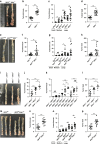
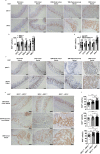
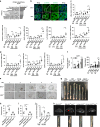
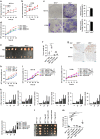
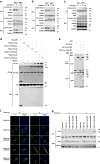
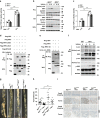
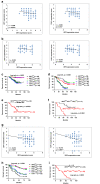
References
Publication types
MeSH terms
Substances
LinkOut - more resources
Full Text Sources
Medical
Molecular Biology Databases

